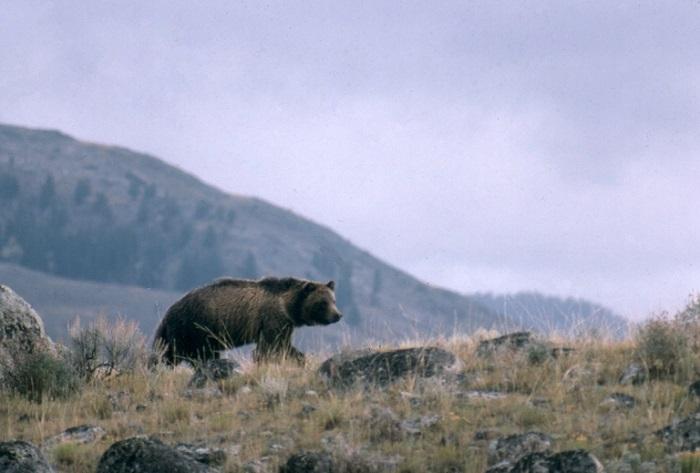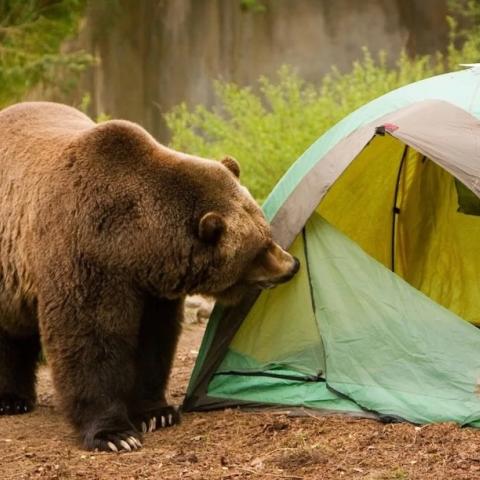
Scientists will conduct grizzly research and trapping operations in April at Grand Teton National Park./NPS
While the U.S. Fish and Wildlife Service has proposed removing federal protections from grizzly bears in the Greater Yellowstone Ecosystem, and conservation groups have sued to prevent hunting animals like grizzlies in Grand Teton National Park if they are delisted, scientists continue to conduct research required by the Endangered Species Act.
As part of those efforts, bear research and trapping operations by biologists with the Interagency Grizzly Bear Study Team will be conducted April 13-30 at Grand Teton in Wyoming. The trained professionals will bait, trap, and handle grizzly bears in accordance with strict protocols. Once trapped, the bears are sedated to allow wildlife biologists to collar the bears and collect samples and data for scientific study.
The area around trapping sites will be posted with bright warning signs to inform the public of the activities. For bear and human safety, visitors must stay out of the posted areas.
The Interagency Grizzly Bear Study Team was established in 1973 to research and monitor bears across the Greater Yellowstone Ecosystem in a collaborative effort between federal land managers and state wildlife agencies. Gathering of critical data on these protected bears is part of a long-term research effort to support the recovery of the area’s grizzly bear population under the Endangered Species Act. The team includes representatives from the National Park Service, U.S. Geological Survey, U.S. Fish and Wildlife Service, U.S. Forest Service, Eastern Shoshone and Northern Arapaho Tribal Fish and Game Department, and the states of Idaho, Montana, and Wyoming.
In announcing plans to delist the Yellowstone-area grizzlies in March, the Fish and Wildlife Service said the bear population has increased fivefold since 1975, from 136 to about 700 today. In that time, the grizzlies have more than doubled their range and now occupy more than 22,500 square miles, an area larger than the states of New Hampshire, Massachusetts, and Rhode Island combined. The proposal has drawn criticism from environmental groups, who argue that the population is still vulnerable and would be even more so if hunting is allowed.




 Support Essential Coverage of Essential Places
Support Essential Coverage of Essential Places







Comments
Question re: paragraph 1. It sounds as though hunting grizzly bears in Grand Teton will he permitted if they are delisted. Is that the case?
That is a concern, Moe.
http://www.nationalparkstraveler.com/2016/03/did-national-park-service-o...